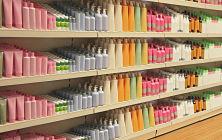Taiwan FDA finds non-compliant cosmetics on the market
One in five products fail to list ingredients correctly
24 May 2017 / Taiwan
Recent surveys of the cosmetics retail market in Taiwan by the Food and Drug Administration (TFDA) indicate general compliance with existing content and quality standards, but continued lack of compliance with labelling requirements.
An annual survey of cosmetics, chosen at random by local health authorities, found that 21 of 130 products failed to comply with the rules. It was released on 3 May, and carried out from January to March.
Twenty of the 21 contained ingredients not listed on Chinese language labels. The other product, a hair remover cream imported from Thailand, contained ingredients prohibited in cosmetics in Taiwan.
The noncompliant products included ten sunscreen creams, four hair dyeing products and one perm preparation. Three products contained salicylic acid (which helps prevent warts, psoriasis, dandruff and acne) and one contained the biocide triclocarban; both substances must comply with certain concentration limits.
All of the products were imported, from countries including Indonesia, South Korea, Japan and Thailand; excluding one item that did not give country of origin.
In April, the TFDA released results of a survey of cosmetics purchased through the internet, carried out as part of a programme to monitor the safety of such products.
A total of 160 facial cleansers, lotions, sunscreens and nail polish products sold on nine online retailers, including Pchome and Momo, were randomly chosen and tested for product quality and labelling accuracy.
Of the 160 products, 32 failed to meet labelling standards. Most of the substandard labels were incomplete, had errors in the ingredients list or did not have Chinese language product descriptions. After testing, the ingredients of two products were found not to agree with their labels.
On a more positive note, in early May the TFDA released results of a market survey of cosmetic products used by children, conducted late last year, which found that all 28 products tested met with standards. The Safety Guidelines for Cosmetics for Children were issued by the TFDA on 14 October 2016. These include labelling requirements for products containing acids such as salicylic acid, camphor, menthol and methyl salicylate.
The products, most of which were imported, included bath cleaning products, sunscreen goods, lotions and lip balm. They were tested for heavy metal content, microorganisms and preservatives, which are specific concerns for children’s health.


